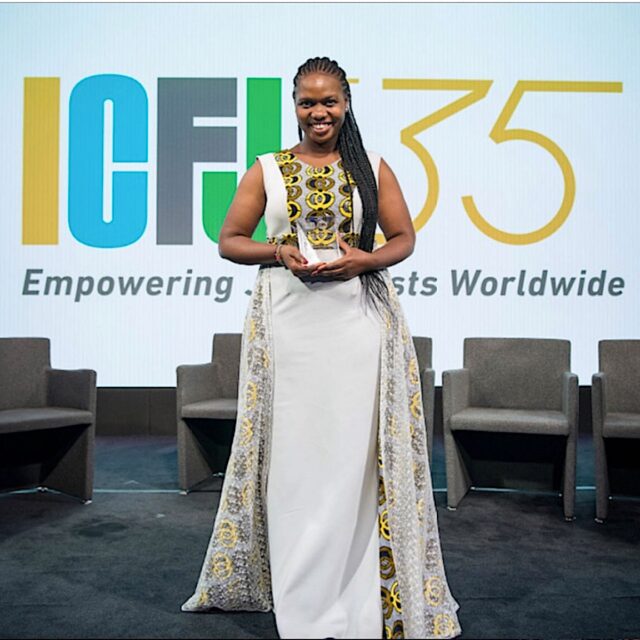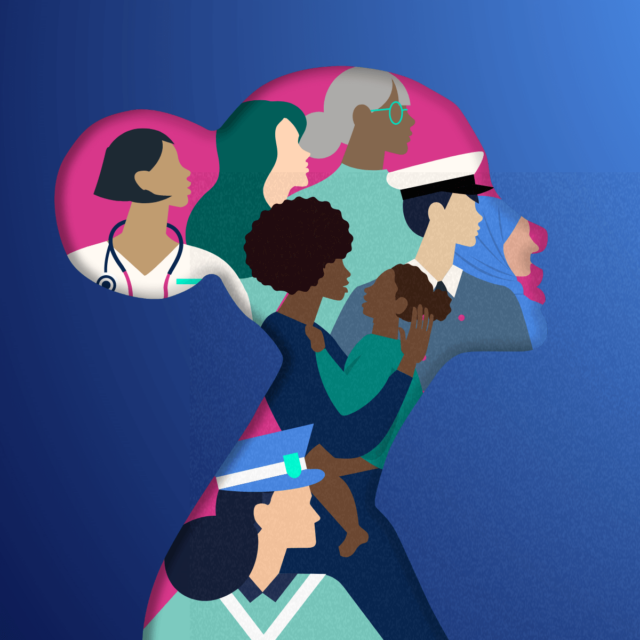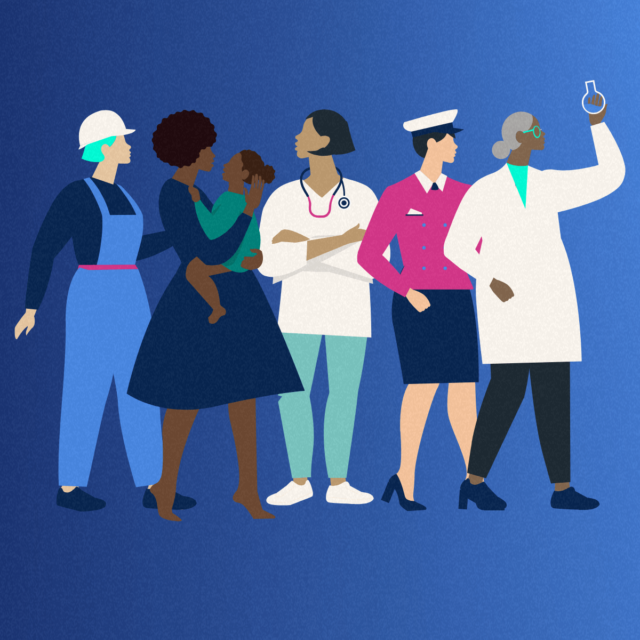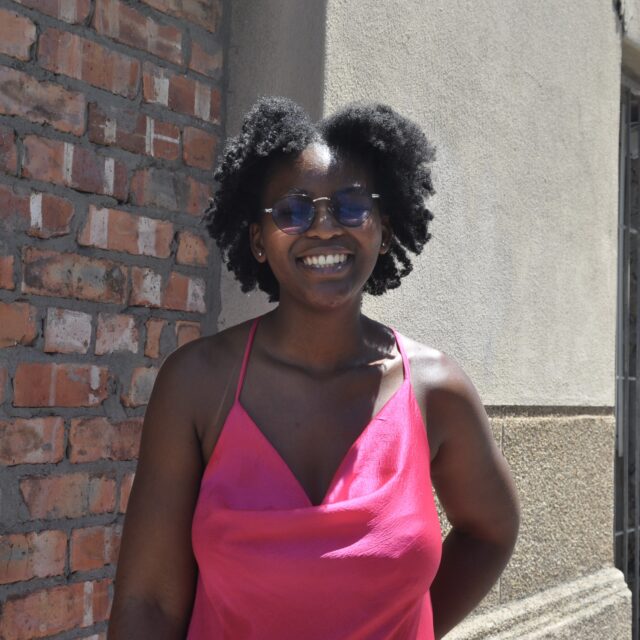In 2017, a group of five Kenyan teenagers, known as “The Restorers,” began an innovative project: developing an app that would combat female genital mutilation (FGM). Their app, I-Cut, helps girls at risk of FGM find rescue centers, while also providing medical and legal advice to those already affected. Their story took the world by storm, getting picked up by news sources worldwide. But, what happened after the buzz, where are they now, and why did the world forget about them?
These are the kinds of questions the 2019 Michael Elliott Award winner, Dorcas Wangira, sought to answer. Her report “The App and the Cut” dives into the issue of FGM, and shows where The Restorers are now in developing I-Cut.
Making a Career in Stories
When Wangira thought of her future as a child, she knew that writing would be a key component. However, she did not always know what form that would take.
“I wanted to be a storyteller. I love to tell stories … I didn’t exactly think that I would ever be in a newsroom, but I knew I was going to tell stories.”
While in college, it clicked that she could make a career in journalism. She credits the start of her career to an award she won in 2014—also on FGM. The award led to an internship in a newsroom, which became a job one year later.
Telling stories about women and girls, and the issues they face, comes naturally to Wangira:
“When you tell stories about women and girls, they come from the heart. They come from your experience. They come from your life history, and you identify with the problems that women and girls face.”
She views journalism as a public service and takes that responsibility seriously. Her work reflects her devotion to sparking change and advocating on vital issues like FGM.
Completing The Restorers’ Story
When she first learned about their story, Wangira was in awe of The Restorers. Aside from her interest in the story, she personally wanted to connect with them.
“I was starstruck at first because they’re so young. I don’t know what I was thinking when I when I was sixteen, (but) I wasn’t thinking about global problems … I wanted to meet them personally, not just because of the story, but as people. We became friends.”
Starstruck feelings aside, Wangira felt that the story of The Restorers was not yet over. Though she was impressed by their story, she noticed that most of the reports that came out about them had the same basic information in them.
“If you looked at some of the reports, they were all similar. There wasn’t anything outside of ‘oh, they’re developing the app. They’re going to America.’ … Not many people actually got to meet them and sit down with them and look at what they had done. It was basically just feeding off of one big report.
“The story was not complete. There was still so much that people needed to know.”
Wangira wanted to fill the gaps left by other reporters. She saw that The Restorers were frustrated with the underreporting of their story. After they returned from America, news outlets had lost interest in keeping up with their work. For a time, they lost hope in finishing the app.
Her report helped to revitalize their determination and help them with development. Now, The Restorers are looking for new partners to help them continue progress on their app.
The Challenges of Combatting FGM
Although the work that The Restorers are doing is essential, it’s only one part of a much bigger issue. Wangira expresses that there is no silver bullet to ending FGM because it’s an ever-evolving issue.
“FGM is so complex. It’s like a Hydra—a monster that has seven heads. You’re trying to cut off one, you still have six more, and the one grows back.”
She’s hopeful that an end to FGM is possible, but it will be an uphill battle that will need many different approaches. She believes that awareness and strengthening legal systems are essential. She mentions the importance of approaching FGM as a health issue, involving men in the fight, creating global partnerships, and utilizing technology. Above all else, she stresses that there cannot be a single fix-all to ending the practice.
“It’s not a one-size-fits-all kind of solution. Different communities have different reasons for doing it, and different countries have different reasons for doing it … We need to have different approaches for different communities.”
Writing Ahead
Wangira views stories as a valuable and essential force in the world. She believes in the power stories have to influence, inform, and shape the world in positive ways.
“Stories are powerful because, first of all, stories humanize people … they help to shed light on what’s really happening by giving it a human face. Stories push people in power. Stories remind people of who they are … I think the most important thing (is) that stories give dignity to people.”
She’s not only working to create change through her own writing, but also empowering others in her community. Her weekly news segment “Your Story” features stories about extraordinary people doing inspiring work. She also works with the interns at her news station, offering them guidance and instilling a sense of direction. Through her work, she’s helping to move the future of storytelling forward.
When she’s not helping others shape their careers, she’s considering changing her own.
“I’d love to transition to a career in public service. We spend a lot of time telling stories to influence policy, but I would love the stories to be a launching pad to a bigger platform.”
The Michael Elliott Award for Excellence in African Storytelling is a prestigious award given to up-and-coming journalists in Africa. The award is given by the International Center for Journalists (ICFJ) in partnership with ONE and the Elliott family.



